Augmenting Team Intelligence and Performance
In a panel moderated by Renate Fruchter, Founding Director of Stanford’s Project Based Learning Laboratory, thought leaders from industry and academia will reveal insights gleaned from the development and application of large-scale collaborative technologies. Global executives from Konica Minolta, Cigna and Sabia Experience in Brazil join Stanford researchers to discuss the transformation of the workplace, and augmenting personal intelligence through collaboration tools, social learning platforms, sensor technology and immersive environments.
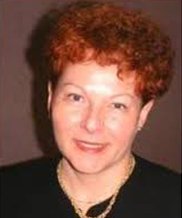 Renate Fruchter, Moderator: Augmenting Team Intelligence and Performance. Renate is the founding director of the PBL Lab. She leads a research effort to develop collaboration technologies for multidisciplinary, geographically distributed teamwork, and e-Learning. Her interests focus on R&D and larger scale deployment of collaboration technologies that include Web-based team building, synchronous and asynchronous knowledge capture, sharing and re-use, project memory, corporate memory, and mobile solutions for global teamwork and e-Learning.
Renate Fruchter, Moderator: Augmenting Team Intelligence and Performance. Renate is the founding director of the PBL Lab. She leads a research effort to develop collaboration technologies for multidisciplinary, geographically distributed teamwork, and e-Learning. Her interests focus on R&D and larger scale deployment of collaboration technologies that include Web-based team building, synchronous and asynchronous knowledge capture, sharing and re-use, project memory, corporate memory, and mobile solutions for global teamwork and e-Learning.
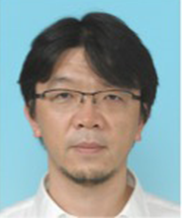 Takao Shudo, Collaboration Tools, Applications and Insights. This presentation will discuss findings and insights from real world testing and applications of collaboration tools (such as interactive whiteboards).
Takao Shudo, Collaboration Tools, Applications and Insights. This presentation will discuss findings and insights from real world testing and applications of collaboration tools (such as interactive whiteboards).
Takao Shudo is Senior Manager, Business Promotion Division, Business Development Headquarters, Konica Minolta, Inc. His background is in Mechanical Engineering, and the development of image related applications, printer drivers, desktop document management tools and knowledge worker productivity related solutions.
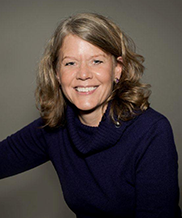 Karen Kocher, Inspiring Quality in Service Systems. At Cigna, a social, collaborative and pervasive learning model is a part of daily work activities for individuals and teams. In her presentation, Karen Kocher, Cigna’s Chief Learning Officer, will describe the variety of innovative applications, platforms and methods developed by Cigna to empower employee engagement with technology to drive collaboration, higher performance and goal achievement.
Karen Kocher, Inspiring Quality in Service Systems. At Cigna, a social, collaborative and pervasive learning model is a part of daily work activities for individuals and teams. In her presentation, Karen Kocher, Cigna’s Chief Learning Officer, will describe the variety of innovative applications, platforms and methods developed by Cigna to empower employee engagement with technology to drive collaboration, higher performance and goal achievement.
Karen Kocher is Cigna’s global Chief Learning Officer. In this role Karen is accountable for enterprise and external stakeholder Learning, Leadership Effectiveness and Organizational Development. Specifically, Karen is responsible for capability and competency development, strategic talent planning, organizational network analysis and development, employee insights and engagement, performance management and career development. Prior to joining Cigna, Karen held multiple roles within IBM including Global Solutions Executive, Software Division and Offering Executive, Advanced and Emerging Technologies, Global Services. Prior to IBM Karen was the General Manager/VP and P&L leader for the IKON Office Solution’s New England Learning Services business. The early years of Karen’s career were spent in line positions in insurance and financial services including medical cost containment, operations, finance, information technology, risk management and sales. Karen earned the prestigious Chartered Property Casualty Underwriter (CPCU) designation from the American College and is a member of the CPCU Society. She is also a graduate of DePaul University with a major in Political Strategy and Communications.
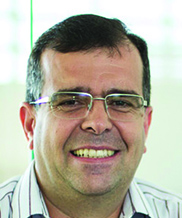 Marcelo Guimarães, Immersive Environments for Team Intelligence. Immersive Learning Environments are being used by big organizations to bridge generational gaps and to enhance team intelligence. Teams improve their performance if they are engaged and committed to an organization’s goals. Authentic and engaging case-based stories and interactive games promote employee and professional commitment to corporate goals and values. Immersive Environments for Team Intelligence must provide a marketplace for
Marcelo Guimarães, Immersive Environments for Team Intelligence. Immersive Learning Environments are being used by big organizations to bridge generational gaps and to enhance team intelligence. Teams improve their performance if they are engaged and committed to an organization’s goals. Authentic and engaging case-based stories and interactive games promote employee and professional commitment to corporate goals and values. Immersive Environments for Team Intelligence must provide a marketplace for
on-demand authentic case-based immersive content, consumed by employees/professionals and created by organizations and experts with real life experiences.”
Marcelo Guimarães is co-founder and Chief Innovation Officer of Sábia Experience, a Brazilian social and technology innovation company dedicated to Immersive Education for the workforce. He holds a Master of Science degree in Metrology and Instrumentation and was a guest researcher at the US NIST (National Institute of Standards and Technology). He has completed executive education at MIT’s Sloan School of Management as well as at Stanford’s Graduate School of Business. Guimarães is co-inventor of many patented technologies and products related to mechaoptoelectronic devices and systems used for training groups of workers in challenging industrial environments, typically found in Oil & Gas, Mining and Construction Industries.
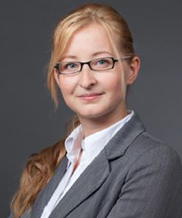 Maria Frank, Engagement Detection to Augment Team Performance. Engagement of collaboration partners is essential for high performance collaboration. This presentation will describe the new sensor environments that allow us to automate the evaluation of engagement and provide in-situ feedback to augment team interaction and performance.
Maria Frank, Engagement Detection to Augment Team Performance. Engagement of collaboration partners is essential for high performance collaboration. This presentation will describe the new sensor environments that allow us to automate the evaluation of engagement and provide in-situ feedback to augment team interaction and performance.
Maria Frank is a Ph.D. Candidate in the Department of Civil and Environmental Engineering at Stanford University and completed a Ph.D. Minor in Education at Stanford. She received the B.S. degree in Architecture from Bauhaus University Weimar in 2010 during which she studies a year at the University of Alicante, Spain. In 2012 she received the M.S. degree in Construction, Real Estate, and Infrastructure Management from Bauhaus University. Her research interests include global teamwork, distributed collaboration, cross-cultural communication and their psycho-physiological manifestations.